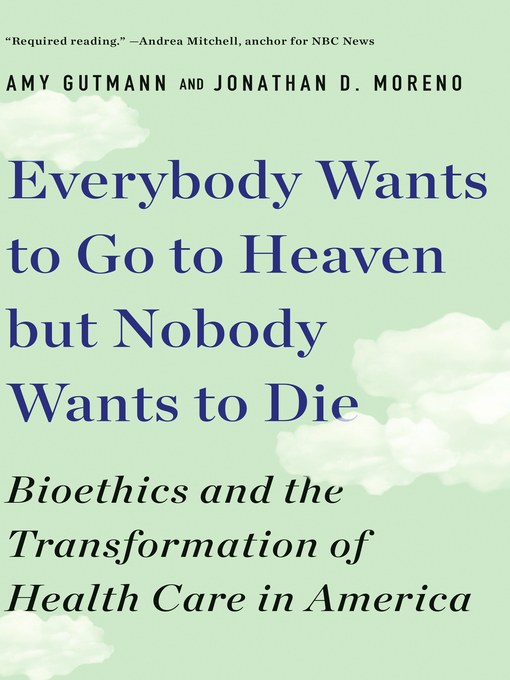NOW FEATURING A NEW AFTERWORD, "PANDEMIC ETHICS"
From two eminent scholars comes a provocative examination of bioethics and our culture's obsession with having it all without paying the price.
Shockingly, the United States has among the lowest life expectancies and highest infant mortality rates of any high-income nation, yet, as Amy Gutmann and Jonathan D. Moreno show, we spend twice as much per capita on medical care without insuring everyone. A "remarkable, highly readable journey" (Judy Woodruff ) sure to become a classic on bioethics, Everybody Wants to Go to Heaven but Nobody Wants to Die explores the troubling contradictions between expanding medical research and neglecting human rights, from testing anthrax vaccines on children to using brain science for marketing campaigns. Providing "a clear and compassionate presentation" (Library Journal) of such complex topics as radical changes in doctor-patient relations, legal controversies over in vitro babies, experiments on humans, unaffordable new drugs, and limited access to hospice care, this urgent and incisive history is "required reading for anyone with a heartbeat" (Andrea Mitchell).



